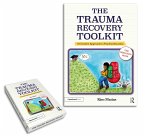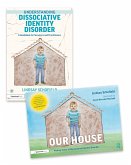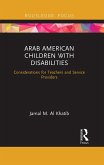Lisa Cherry
Weaving a Web of Belonging: Developing a Trauma-Informed Culture for All Children
Lisa Cherry
Weaving a Web of Belonging: Developing a Trauma-Informed Culture for All Children
- Broschiertes Buch
- Merkliste
- Auf die Merkliste
- Bewerten Bewerten
- Teilen
- Produkt teilen
- Produkterinnerung
- Produkterinnerung
Combining professional practice, the 'science' behind it, and powerful lived experiences, this book offers a true insight into cultivating belonging as an antidote to trauma. It is an essential read for all those who are supporting children and young people, including education practitioners, leaders, social workers, CAMHS and families.
Andere Kunden interessierten sich auch für
![Supporting Children and Young People Who Experience Loss Supporting Children and Young People Who Experience Loss]() Juliette Ttofa (United Kingdom. Specialist Educational Psychologist)Supporting Children and Young People Who Experience Loss30,99 €
Juliette Ttofa (United Kingdom. Specialist Educational Psychologist)Supporting Children and Young People Who Experience Loss30,99 €![Helping Children to Thrive Following Adverse Childhood Experiences Helping Children to Thrive Following Adverse Childhood Experiences]() Mine ConkbayirHelping Children to Thrive Following Adverse Childhood Experiences42,99 €
Mine ConkbayirHelping Children to Thrive Following Adverse Childhood Experiences42,99 €![Helping Children Learn About Domestic Abuse and Coercive Control Helping Children Learn About Domestic Abuse and Coercive Control]() Abigail SterneHelping Children Learn About Domestic Abuse and Coercive Control38,99 €
Abigail SterneHelping Children Learn About Domestic Abuse and Coercive Control38,99 €![Creating Trauma-Informed Schools Creating Trauma-Informed Schools]() Eileen A DomboCreating Trauma-Informed Schools55,99 €
Eileen A DomboCreating Trauma-Informed Schools55,99 €![The Trauma Recovery Toolkit The Trauma Recovery Toolkit]() Kim MatiasThe Trauma Recovery Toolkit50,99 €
Kim MatiasThe Trauma Recovery Toolkit50,99 €![Understanding Dissociative Identity Disorder Understanding Dissociative Identity Disorder]() Lindsay SchofieldUnderstanding Dissociative Identity Disorder52,99 €
Lindsay SchofieldUnderstanding Dissociative Identity Disorder52,99 €![Arab American Children with Disabilities Arab American Children with Disabilities]() Jamal M Al KhatibArab American Children with Disabilities28,99 €
Jamal M Al KhatibArab American Children with Disabilities28,99 €-
-
-
Combining professional practice, the 'science' behind it, and powerful lived experiences, this book offers a true insight into cultivating belonging as an antidote to trauma. It is an essential read for all those who are supporting children and young people, including education practitioners, leaders, social workers, CAMHS and families.
Hinweis: Dieser Artikel kann nur an eine deutsche Lieferadresse ausgeliefert werden.
Hinweis: Dieser Artikel kann nur an eine deutsche Lieferadresse ausgeliefert werden.
Produktdetails
- Produktdetails
- Verlag: Taylor & Francis Ltd
- Seitenzahl: 180
- Erscheinungstermin: 2. Mai 2025
- Englisch
- Abmessung: 216mm x 138mm
- ISBN-13: 9781032730813
- ISBN-10: 1032730811
- Artikelnr.: 72109047
- Herstellerkennzeichnung
- Libri GmbH
- Europaallee 1
- 36244 Bad Hersfeld
- gpsr@libri.de
- Verlag: Taylor & Francis Ltd
- Seitenzahl: 180
- Erscheinungstermin: 2. Mai 2025
- Englisch
- Abmessung: 216mm x 138mm
- ISBN-13: 9781032730813
- ISBN-10: 1032730811
- Artikelnr.: 72109047
- Herstellerkennzeichnung
- Libri GmbH
- Europaallee 1
- 36244 Bad Hersfeld
- gpsr@libri.de
Dr Lisa Cherry is a leading international trainer, specialising in assisting professionals working with vulnerable children and families to understand trauma, recovery and resilience. She is the Director of Trauma Informed Consultancy Services, an organisation which provides a holistic approach to supporting those working in universal, targeted or specialist settings, services and systems. Lisa brings over three decades of working in educational and social care settings and a 30-year journey of recovery in overcoming her own experiences of trauma.
Foreword
Collective Care
Acknowledgments
Introduction
Part 1: Weaving The Web of Belonging. The historical weaving of unbelonging
Chapter 1 - It Starts With Us
My Relationship with Belonging
School Exclusion and Belonging
Education and Belonging
Professional Experience and Belonging
Data or Wisdom
Chapter 2 - Carrying the Burden of the Past
Historical Exploration
Legislation
Unbelonging
Education and children's social care
Recent Legislation
Chapter 3 - The Stigma Wound
Research Themes
Stigma and Movement
Types of Movement
Types of Stigma
Trauma and Stigma
Memories
Stigma and Power
Aspects of Power
Chapter 4 - The Impact of Unbelonging
Language
Language and Labelling
Children in Care
School Exclusion
Exclusion and Children in Care
Trauma
Belonging
Underpinning theoretical frameworks for thinking about belonging
Contemporary Comprehensions of Belonging
Developing a Trauma Informed Culture
Part 2: Reconceptualising Weaving The Web: Contemporary Opportunities to
Weave
Chapter 5 - Language That Heals
Historical overview
Importance of language
Where Does Language Sit in Practice?
Speaking in Acronyms
Interpretation and Internalisation
The Language of Trauma of Stigma
Self-forgiveness
Chapter 6 - Leadership is a Verb
Being a Leader is more than a Job Title
Creating Meaningful Connections
Emotional Intelligence
Chapter 7 - Intersection and Intersectionality
Care as a Defining Experience
Positionality
Additional Needs
Mental Health, 'SEND' and Wellbeing
Naming Exclusion
Racism
Endurance
Part 3: Reconceptualising Weaving The Web: Faces, Spaces and Places
Chapter 8 - Faces That Make a Difference
FACES
Finding Faces
Chapter 9 - Spaces That Make a Difference
Movement
Finding belonging
Chapter 10 - Places That Make a Difference
Chapter 11 - Beyond Practice
Doing Better in Policy
Doing Better in Practice
Doing Better in Research
Chapter 12 - Closing Words
Prologue
Index
Collective Care
Acknowledgments
Introduction
Part 1: Weaving The Web of Belonging. The historical weaving of unbelonging
Chapter 1 - It Starts With Us
My Relationship with Belonging
School Exclusion and Belonging
Education and Belonging
Professional Experience and Belonging
Data or Wisdom
Chapter 2 - Carrying the Burden of the Past
Historical Exploration
Legislation
Unbelonging
Education and children's social care
Recent Legislation
Chapter 3 - The Stigma Wound
Research Themes
Stigma and Movement
Types of Movement
Types of Stigma
Trauma and Stigma
Memories
Stigma and Power
Aspects of Power
Chapter 4 - The Impact of Unbelonging
Language
Language and Labelling
Children in Care
School Exclusion
Exclusion and Children in Care
Trauma
Belonging
Underpinning theoretical frameworks for thinking about belonging
Contemporary Comprehensions of Belonging
Developing a Trauma Informed Culture
Part 2: Reconceptualising Weaving The Web: Contemporary Opportunities to
Weave
Chapter 5 - Language That Heals
Historical overview
Importance of language
Where Does Language Sit in Practice?
Speaking in Acronyms
Interpretation and Internalisation
The Language of Trauma of Stigma
Self-forgiveness
Chapter 6 - Leadership is a Verb
Being a Leader is more than a Job Title
Creating Meaningful Connections
Emotional Intelligence
Chapter 7 - Intersection and Intersectionality
Care as a Defining Experience
Positionality
Additional Needs
Mental Health, 'SEND' and Wellbeing
Naming Exclusion
Racism
Endurance
Part 3: Reconceptualising Weaving The Web: Faces, Spaces and Places
Chapter 8 - Faces That Make a Difference
FACES
Finding Faces
Chapter 9 - Spaces That Make a Difference
Movement
Finding belonging
Chapter 10 - Places That Make a Difference
Chapter 11 - Beyond Practice
Doing Better in Policy
Doing Better in Practice
Doing Better in Research
Chapter 12 - Closing Words
Prologue
Index
Foreword
Collective Care
Acknowledgments
Introduction
Part 1: Weaving The Web of Belonging. The historical weaving of unbelonging
Chapter 1 - It Starts With Us
My Relationship with Belonging
School Exclusion and Belonging
Education and Belonging
Professional Experience and Belonging
Data or Wisdom
Chapter 2 - Carrying the Burden of the Past
Historical Exploration
Legislation
Unbelonging
Education and children's social care
Recent Legislation
Chapter 3 - The Stigma Wound
Research Themes
Stigma and Movement
Types of Movement
Types of Stigma
Trauma and Stigma
Memories
Stigma and Power
Aspects of Power
Chapter 4 - The Impact of Unbelonging
Language
Language and Labelling
Children in Care
School Exclusion
Exclusion and Children in Care
Trauma
Belonging
Underpinning theoretical frameworks for thinking about belonging
Contemporary Comprehensions of Belonging
Developing a Trauma Informed Culture
Part 2: Reconceptualising Weaving The Web: Contemporary Opportunities to
Weave
Chapter 5 - Language That Heals
Historical overview
Importance of language
Where Does Language Sit in Practice?
Speaking in Acronyms
Interpretation and Internalisation
The Language of Trauma of Stigma
Self-forgiveness
Chapter 6 - Leadership is a Verb
Being a Leader is more than a Job Title
Creating Meaningful Connections
Emotional Intelligence
Chapter 7 - Intersection and Intersectionality
Care as a Defining Experience
Positionality
Additional Needs
Mental Health, 'SEND' and Wellbeing
Naming Exclusion
Racism
Endurance
Part 3: Reconceptualising Weaving The Web: Faces, Spaces and Places
Chapter 8 - Faces That Make a Difference
FACES
Finding Faces
Chapter 9 - Spaces That Make a Difference
Movement
Finding belonging
Chapter 10 - Places That Make a Difference
Chapter 11 - Beyond Practice
Doing Better in Policy
Doing Better in Practice
Doing Better in Research
Chapter 12 - Closing Words
Prologue
Index
Collective Care
Acknowledgments
Introduction
Part 1: Weaving The Web of Belonging. The historical weaving of unbelonging
Chapter 1 - It Starts With Us
My Relationship with Belonging
School Exclusion and Belonging
Education and Belonging
Professional Experience and Belonging
Data or Wisdom
Chapter 2 - Carrying the Burden of the Past
Historical Exploration
Legislation
Unbelonging
Education and children's social care
Recent Legislation
Chapter 3 - The Stigma Wound
Research Themes
Stigma and Movement
Types of Movement
Types of Stigma
Trauma and Stigma
Memories
Stigma and Power
Aspects of Power
Chapter 4 - The Impact of Unbelonging
Language
Language and Labelling
Children in Care
School Exclusion
Exclusion and Children in Care
Trauma
Belonging
Underpinning theoretical frameworks for thinking about belonging
Contemporary Comprehensions of Belonging
Developing a Trauma Informed Culture
Part 2: Reconceptualising Weaving The Web: Contemporary Opportunities to
Weave
Chapter 5 - Language That Heals
Historical overview
Importance of language
Where Does Language Sit in Practice?
Speaking in Acronyms
Interpretation and Internalisation
The Language of Trauma of Stigma
Self-forgiveness
Chapter 6 - Leadership is a Verb
Being a Leader is more than a Job Title
Creating Meaningful Connections
Emotional Intelligence
Chapter 7 - Intersection and Intersectionality
Care as a Defining Experience
Positionality
Additional Needs
Mental Health, 'SEND' and Wellbeing
Naming Exclusion
Racism
Endurance
Part 3: Reconceptualising Weaving The Web: Faces, Spaces and Places
Chapter 8 - Faces That Make a Difference
FACES
Finding Faces
Chapter 9 - Spaces That Make a Difference
Movement
Finding belonging
Chapter 10 - Places That Make a Difference
Chapter 11 - Beyond Practice
Doing Better in Policy
Doing Better in Practice
Doing Better in Research
Chapter 12 - Closing Words
Prologue
Index








